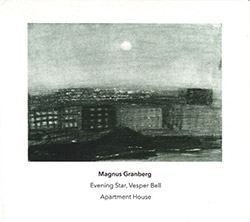
Written for and performed by the UK ensemble Apartment House, composer & performer Magnus Granberg's latest work reduces his working size from the larger Skogen ensemble to this sextet, opening new possibilities for composed structures that incorporate improvisation, in a work structured around components from Schubert's Abendbilder and So in Love by Cole Porter.
In Stock
Quantity in Basket: None
Log In to use our Wish List
Shipping Weight: 3.00 units
Sample The Album:
Magnus Granberg-prepared piano, composer
Bridget Carey-viola
Simon Limbrick-vibraphone, percussion
Anton Lukoszevieze-cello
Chihiro Ono-violin
Heather Roche-clarinet
Click an artist name above to see in-stock items for that artist.
Label: Another Timbre
Catalog ID: at209
Squidco Product Code: 33210
Format: CD
Condition: New
Released: 2023
Country: UK
Packaging: Cardboard Gatefold
Recorded at Goldsmiths Music Studio, in London, UK, in November, 2022, by Simon Reynell.
"Magnus Granberg has appeared on Another Timbre more than any other composer. "Evening Star, Vesper Bell" is the tenth CD of his music to be released on this label, a relationship that began with 'Ist gefallen in den Schnee' back in 2012. Coming from a background in improvisation, Magnus had become frustrated with the difficulties of producing satisfactory results in larger group improvisations. He formed the ensemble Skogen in his native Sweden to work with a group of like-minded musicians to try to develop a way of combining the openness, flexibility and 'live' qualities of improvisation with the structure and control that comes with composition. There are 1,001 ways of combining improvisation and composition, but the results are often very uneven. The method that Magnus has refined is the most consistently successful that I know, and has enabled him to produce a remarkable continuity of atmosphere, mood and quality across different works and ensembles.
His compositions assemble reservoirs of musical material which the musicians are free to choose from in real time depending on the ensemble sound being created at that moment. The pitched and rhythmic materials are derived from existing works (Schubert's songs have been a frequent source), but the source music is radically transformed, and often arranged into modal segments, giving the music a harmonic coherence that would be impossible to achieve in a purely improvised context.
Several of Magnus's releases have been with Skogen, but he has also worked with ad hoc groupings that came together to realise his music, as well as existing ensembles such as Ordinary Affects, the Insub Meta Orchestra, Ensemble Grizzana, and now Apartment House. In addition to Another Timbre, Magnus has released excellent music on labels such as INSUB records, Thanatosis Produktion and the Japanese label Meenna.
If you don't know Magnus's music, "Evening Star, Vesper Bell", his new collaboration with Apartment House, is possibly my favourite of all his CDs, and would be a great place to start."-Another Timbre
Another Timbre Interview with Magnus Granberg
Firstly, what are the musical source materials that you have used in this piece? And why the title "Evening Star, Vesper Bell"?
Well, the piece takes as its points of departure two very different songs, Abendbilder by Franz Schubert and So in Love by Cole Porter, both of which I more or less happened to stumble upon when I was about to start writing the piece. The rhythmic materials are mostly derived or extracted from Abendbilder, whereas the tonal materials are roughly derived from So in Love - though both the rhythmic and tonal materials were heavily transformed by various methods.
The title alludes on the one hand to the time of day during which both songs take place (in the evening or even the night), and on the other hand to the occurrence of stars in the lyrics of So in Love. And in addition to that, there is also the occurrence of a vesper bell (Abendglöcklein) in Johann Silbert's lyrics of Abendbilder, and the Evening Star obviously also refers to the planet Venus or Hesperus (or Vesper) as it is also called. So it's all something of a silly pun, I guess.
Though you'd worked with Anton Lukoszevieze before, this was the first time that you'd worked with Apartment House, and none of the other four musicians had ever played your music. How do you go about introducing musicians to your way of working, and to the feel of your music, and how did it go on this occasion?
Yes, I had worked with Anton a couple of times before on the Early to Late project with Jürg Frey and Ensemble Grizzana, but this was the first time I worked with the other musicians of Apartment House. I am often a bit shy speaking in front of people and don't want to be too dominant, so I generally don't say very much before playing the music, except for perhaps just a few words on how the music works and answering any questions that may occur. It's also very much a matter of letting the musicians and the ensemble find their own way of navigating the music (individually and collectively), of developing a performance practice which the musicians are comfortable with, but which is also compatible with the general character of the music as I perceive it. So it's very much a matter of just playing the piece together in order to develop a certain sense of the music and of the dynamics of the ensemble and how these things relate to one another, and then just making small adjustments, or encouraging the ensemble and confirming that things are working well. But it's very much a non-verbal communication which mainly takes place in and through the music itself. And working with Apartment House was very easy: they are such a fine ensemble, so attuned to one another and with a very extensive experience improvising as well as performing open scores of various kinds, so the music fell into place very quickly. I think we rehearsed for about ten minutes before recording the first take of the piece (which I thought was very good, by the way!).
I find this piece exceptionally beautiful, and have listened to it loads of times. But it uses a compositional method that you have been working with for quite a long time now. Will you continue down this path, or do you now want to explore other ways of composing?
Yes, this is a way of working which I have tried to explore and hopefully learned to refine somewhat in the past twelve or fifteen years or so. And that was also very much what I perceived as being my task or objective when I first started to compose: to try to develop a music which was coherent and consistent while at the same time hopefully being unpredictable and adventurous - a music in which the unknown sprang from the known and which was open to the improvisational dynamics of the individual as well as the collective. This kind of dynamic (and excitement!) is also very much what attracted me to music in the first place when I started listening to and playing jazz as a kid, and even though my musical language today possibly may be perceived as being quite different from the language(s) of jazz, I do think there is still a certain kinship to the music which I first was attracted to in terms of musical and improvisational dynamics.
In recent years I have been thinking quite a lot about how to explore other gradations of this spectrum between indeterminacy and freedom of action on the one hand, and coherency and consistency on the other, particularly when writing music for musicians and ensembles who do not necessarily have a lot of experience improvising or performing open scores. This is a path which I will most likely try to pursue further in the future: in the past year or two I have made some first attempts, but there is so much work to be done in this area and I hope I will have the time and opportunity to explore it further in the forthcoming years.
You play a lightly prepared piano on 'Evening Star...', as with most of the recordings of your works at which you're present. But I remember that originally your instrument was saxophone, and then clarinet. Since you started composing with your system, the only disc I can think of where you play a woodwind instrument is 'Would fall from the sky, would wither and die', where you play clarinet. One of the things I really like about this new disc is that the clarinet features quite prominently - albeit played not by you, but by Heather Roche. Were you conscious of this, and why do you think you haven't tended to compose much for saxophones or clarinets?
After having spent many years playing the saxophone and playing jazz and improvised musics, I kind of shied away from wind instruments when finally arriving at my own music. I somehow felt that wind instruments often tended to occupy too much acoustic space, almost regardless of how softly they were played. It was as if the sound of the wind instruments were almost sealing up the very light, transparent and permeable texture of the music and its proximity to silence (as opposed to the sound of instruments with a natural decay, or string instruments played with a very light bow pressure) which I treasured so much and which I somehow felt that my music was emanating from. The clarinet is a wind instrument which I feel is very much an exception to this, as it's possible to play very softly throughout the entire range, blending very well with other instruments while at the same time potentially being very complex in terms of timbre. It's also an instrument that I've tried to learn and play on and off during the past decade or so. But having had too little time to learn the instrument as well as I'd like, it's actually a great pleasure (and something of a relief) to hand over the task to such a brilliant player as Heather. I think she plays the music wonderfully well.
The Apartment House percussionist, Simon Limbrick, said to me that even though you weren't very vocal at the recording session, and you weren't 'leading' the recording of 'Evening Star...' in any obvious way, he nonetheless felt that your piano playing did very usefully set the horizon for their interpretation. You told me that you were thinking of writing a string quartet. Obviously, even if you were present at a quartet performance, you wouldn't be playing. This wouldn't be the first time you've composed for an ensemble that doesn't include you, but does it feel daunting to be writing more music now for interpretation by ensembles when you are not present? And are there other projects coming up where this will be the case?
Yes, as I said before, I become a little shy when speaking in front of people, and I also feel that making the music work is very much a matter of just playing it together in order to develop and cultivate a common performance practice which makes the musical situation interesting for the ensemble. That being said, saying a few words can of course also really help to clarify certain aspects of the music and what benefits it, but in the end I think this is mainly communicated through the music rather than through words. And yes, even if I'm not very vocal when 'leading' an ensemble, my idea with the piano playing has always been to gently direct, or perhaps rather suggest certain possibilities to the ensemble, maybe a little bit like someone like Count Basie, who also happens to be one of my very first musical heroes. And yes, it's true that I have been thinking of writing a string quartet for various reasons, one of them being writing music for a standard setting and for musicians who don't necessarily have much experience of improvising or playing open scores. Another aspect is to get to explore different positions on the spectrum of musical possibilities and ensemble dynamics, of consistency and coherency on the one hand, and of indeterminacy and various gradations of improvisational dynamics on the other. And yes, not participating myself and somehow losing some control of the music may sometimes feel a little bit daunting on the one hand, but on the other hand there are many different positions and dynamics one is encouraged (or even forced) to explore when one isn't playing oneself. Recent projects on which I didn't play include a series of pieces which I wrote for the Swedish Tya Ensemble last year, as well as a very recent piece for the Chicago-based chamber ensemble a.pe.ri.od.ic. Upcoming projects of this kind include a solo piece for the American trumpet player Nate Wooley, and a new piece for the recently founded harp quartet AHA, comprised of harpists Stina Hellberg Agback, Hélène Breschand, Milana Zaric and Rhodri Davies. All of these musicians are just brilliant improvisers and interpreters though, so I consider myself to be in very safe hands, for sure!

The Squid's Ear!
Artist Biographies
• Show Bio for Magnus Granberg "Magnus Granberg is a composer and performer working at an intersection between contemporary chamber music and improvisation. He is based in Stockholm, Sweden. Born in Umeå in 1974, he studied saxophone and improvisation at the University of Gothenburg and in New York in his late teens and early twenties. Self-taught as a composer, he formed his own ensemble Skogen in 2005 trying to integrate experiences, methods and materials from various traditions of improvised and composed musics into a new modus operandi. Now mainly working with the ensemble Skogen and the newly formed Skuggorna och ljuset, while also writing music on commission for different ensembles and projects. He is also active as an improvisor in different contexts, mainly playing the clarinet. His music has been performed in Norway, Sweden, Switzerland, the United States, England, Austria, Hungary and Slovenia, broadcast by public radio channels in England (BBC Radio 3 and 6), Germany (SWR 2), Sweden (SR P2), Estonia, Slovenia, Serbia, Hungary and the United States, and has been published by the British record label Another Timbre. Recent work includes a commission from Another Timbre and Ensemble Grizzana and collaborations with musicians such as David Sylvian, Christoph Schiller and the Swiss duo Diatribes. He has in the last decade also, more or less regularly, collaborated with musicians such as Angharad Davies, Tisha Mukarji, Tetuzi Akiyama, Toshimaru Nakamura, Anna Lindal, Kristine Scholz, Rhodri Davies, Simon Allen, Christoph Schiller and Ko Ishikawa." ^ Hide Bio for Magnus Granberg • Show Bio for Bridget Carey "Bridget Carey studied jointly at the Royal Academy of Music and London University and has pursued a varied freelance career based in London, and has developed a particular reputation in the field of new music. For 15 years she premiered new chamber opera for the Almeida, whilst working in dance scores with Siobhan Davies and Rambert companies, classical contemporary with Opus 20 and Music Projects/London and new complexity with Ensemble Expose. From 1995-2005 she was viola player with the Kreutzer string quartet. More recently, her chamber music interests include Okeanos and the RPS award-winning experimental music group Apartment House, with whom she continues to add to her chamber music discography. She has been a member of Britten Sinfonia for the last 20 years, and is a regular guest with London Sinfonietta and BCMG, among others." ^ Hide Bio for Bridget Carey • Show Bio for Simon Limbrick "Simon Limbrick's involvement in music embraces performance, composing and education.
He was a member of the cult systems orchestra The Lost Jockey and Man Jumping, recording for EG Editions and creating scores for leading dance companies, Second Stride, London Contemporary Dance, Rosemary Lee and Sue MacLennan. He has been in demand as a percussionist performing all over the world with the Nash Ensemble, Birmingham Contemporary Music Group, Endymion Ensemble, Composers' Ensemble and Fibonacci Sequence as well as recording with artists such as Alabama3, Gavin Bryars Pete Lockett and for Blue Note Records. He has been guest principal with the LSO and worked under conductors, Leonard Bernstein, Oliver Knussen, Simon Rattle and Tom Ades. He has featured on film and television including documentaries about Steve Reich and Kenneth MacMillan's award winning Judas Tree.Compositions created for him include works by Javier Alvarez, Brian Elias (Kenneth MacMillan's last ballet The Judas Tree), Vic Hoyland and Andrew Poppy. He has performed the world-premieres of solo pieces by James Dillon, Frederic Rzewski , Claude Vivier, Philip Cashian, Thea Musgrave, Harry de Wit, Howard Skempton, Michael Wolters and Ed Kelly. His solo performances have been broadcast by the BBC, RAI, Radio France, Dutch TV and radio. Recently, he performed his own concerto Bulls Yard and Stockhausen's Zyklus at the Sage, Gateshead,(see review) solo steel-pan in Brian Elias' Judas Tree at Royal Opera House, London, in 2010 and directed his mixed-media project, dot-machine, a web-based musical construction accessible on www.marimbo.com. He created a 24 hour long piece surfaces with the composer James Saunders, with financial assistance from the Arts Council of Great Britain and premiered at the Huddersfield Contemporary Music Festival in 2011. In education, Simon has led workshops since 1982, and been a returning resident artist in festivals and organisations, including Blackheath Concert Halls, Aldeburgh Music, Sound It Out , Spitalfields Festival. Workshop projects have been led by him throughout Europe. As a fully-qualified teacher, he has led Music and Performing Arts in Secondary Schools for five years. He has led school and community projects for Aldeburgh Music. As Artistic Director, he helped establish In Harmony Norwich, creating mixed-ability orchestral pieces for professional and young student players. Until the School of Music closed in June 2014, he was Director of 'Musician in the Community' and 'Creative Leadership' courses at University of East Anglia.
As a composer, Simon has gained an MA in Electroacoustic Composition from City University and collaborated as a composer on a number of large scale works, including a project at Fort Dunlop, Birmingham, with Rosemary Lee and site-specific work with Dutch composer/sound sculptor Harry de Wit in Holland and Brussels.He has produced film scores for TV and film festivals and composed music for theatre productions at the National Theatre and Royal Shakespeare Companies. Groups he has created pieces for include Mary Wiegold's Songbook, Roger Heaton Group, Ensemble Bash, Network of Sparks, Endymion Ensemble, Richard Durrant, Ritmatic, Hooloo. The Brighton Youth Orchestra performed machina lumina , for string ensemble and vibraphone throughout 2009. His composition Machine for Living for Landesmusikrat/Splash was recorded at Deutschlandradio. He has produced recordings for wergo and others.Currently composing a large piece for jazz brass and marimba. He has created the CDs, Steam, Hooloo, Clean, Ritmatik, Dot-Machine, Hammer, Rise and Fall, , between and Relay, which are frequently broadcast and available on well-known download sites. NEW RELEASE of a double CD RELAY, of contemporary steel-pan music in Sept 2014. Sound Composer for the film 3 Church Walk by the director Emily Richardson premiered on 18th Oct 2014 at The London Festival, BFI, London." ^ Hide Bio for Simon Limbrick • Show Bio for Anton Lukoszevieze "Cellist Anton Lukoszevieze (born 1965 in the UK) is one of the most diverse performers of his generation and is notable for his performances of avant-garde, experimental and improvised music. Anton has given many performances at numerous international festivals throughout Europe and the USA (Maerzmusik, Donaueschingen, Wien Modern, GAS, Transart, Ultima, etc.etc.). He has also made frequent programmes and broadcasts for BBC Radio 3, Danish Radio, SR2, Sweden, Deutschland Rundfunk, WDR, Germany and ORT, Austria. Deutschlandfunk, Berlin produced a radio portrait of him in September, 2003. Anton has also performed concerti with the City of Birmingham Symphony Orchestra at the 2001 Aldeburgh festival and the Netherlands Radio Symphony Orchestra. He has collaborated with many composers and performers including David Behrman, Alvin Lucier, Amnon Wolman, Pierre Strauch, Rytis Mazulis, Karlheinz Essl, Helmut Oehring, Christopher Fox, Philip Corner, Alvin Curran, Phill Niblock and Laurence Crane, He is unique in the UK through his use of the curved bow (BACH-Bogen), which he is using to develop new repertoire for the cello. From 2005-7 he was New Music Fellow at Kings College, Cambridge and Kettles Yard Gallery. Anton is the subject of four films (FoxFire Eins) by the renowned artist-filmmaker Jayne Parker. A new film Trilogy with compositions by Sylvano Bussotti, George Aperghis and Laurence Crane premieres at The London Film Festival, October 2008. In November will premiere a new hour long work by Christopher Fox for cello and the vocal ensemble Exaudi commissioned by the Huddersfield Contemporary Music Festival and will also present new solo works for cello and live electronics. Anton is also active as an artist, his work has been shown in Holland (Lux Nijmegen), CAC, Vilnius, Duisburg (EarPort), Austria, (Sammlung Essl), Wien Modern, The Slade School of Art, Kettles Yard Gallery, Cambridge Film Festival and Rational Rec. London. His work has been published in Musiktexte, Cologne, design Magazine and the book SoundVisions (Pfau-Verlag, Saarbrucken, 2005). Anton Lukoszevieze is founder and director of the ensemble Apartment House, a member of the radical noise group Zeitkratzer and recently made his contemporary dance debut with the Vincent Dance Company in Broken Chords, Dusseldorf." ^ Hide Bio for Anton Lukoszevieze • Show Bio for Chihiro Ono "Japanese-born violinist Chihiro Ono use music as a tool to explore human abilities, link people and places, and open human beings' minds." ^ Hide Bio for Chihiro Ono • Show Bio for Heather Roche "Born in Canada, clarinetist Heather Roche trained in England, lived in Germany for 7 years and now lives in London. She has performed at some of the major European festivals, including musikFest (Berlin), BachFest (Leipzig), Musica Nova (Helsinki), Acht Brücken (Cologne), the International Computer Music Conference (Huddersfield, Ljubljana), the Dias de Música Electroacústica (Seia, Portugal) and the Agora Festival (Ircam, Paris). She has also performed solo programmes at the Zagreb Music Biennale, the Huddersfield Contemporary Music Festival, the New York Electroacoustic Symposium, at CIRMMT (Montreal), Unerhörte Musik (Berlin), Eavesdropping (London), and with the Birmingham Electroacoustic Sound Theatre (BEAST). She has performed with ensembles and orchestras including Musik Fabrik (Cologne), the WDR Orchestra (Cologne), mimitabu (Gothenburg), the London Symphony Orchestra (London), ensemble Garage (Cologne), ensemble interface (Berlin), the Riot Ensemble (London), the Alisios Camerata (Zagreb), and ensemble proton (Bern). She also plays across the UK in a trio with Carla Rees (flutes) and Xenia Pestova (piano) and in 2015 formed an duo with the accordionist Eva Zöllner, with whom she has played across Germany, the UK and in Portugal. She is a founding member of hand werk, a 6-person chamber music ensemble based in Cologne, and worked with the group from 2010-2017. She has solo CDs out on the HCR/NMC and Métier labels. Please see the Discography for further details. In 2014 she was awarded a DIVA (Danish International Visiting Artists Fellowship), and lived in Copenhagen for two months. Since 2016 she has acted as the Reviews Editor for TEMPO, a quarterly journal for contemporary music published by Cambridge University Press. Her website is host to one of the most widely read new music blogs on the Internet. In 2017 it had 75,000 hits from around the world. She successfully crowdfunded in 2014 in order to host her first composition competition. Six young composers were chosen out of 270 applicants to write new pieces, which were premiered in 2016. She is a fervent advocate of collaboration, and her PhD research at the University of Huddersfield (under the supervision of Dr. Philip Thomas) explored the nature of dialogue within performer-composer relationships. She has given workshops in instrumental technique and/or iPad use in performance all over Europe, for example in London, Munich and Copenhagen. Heather completed her Masters of Music (Orchestral Training) in 2006 at the Guildhall School of Music and Drama in London, studying under Joy Farrall and Laurent Ben Slimane, in addition to conducting with Sian Edwards. Following her degree she completed residencies with the International Ensemble Modern Academy, at IMPULS in Graz and with ensemble recherche in Freiburg, the Darmstadt Summer Courses 2008 and 2010 and the International Ensemble Modern Academy in Innsbruck, Austria. She has performed in masterclasses with Michael Collins, Ernesto Molinari and Shizuyo Oka, to name a few. She completed her BMus in 2005 at the University of Victoria, Canada, studying under Patricia Kostek." ^ Hide Bio for Heather Roche
11/20/2024
Have a better biography or biography source? Please Contact Us so that we can update this biography.
11/20/2024
Have a better biography or biography source? Please Contact Us so that we can update this biography.
11/20/2024
Have a better biography or biography source? Please Contact Us so that we can update this biography.
11/20/2024
Have a better biography or biography source? Please Contact Us so that we can update this biography.
11/20/2024
Have a better biography or biography source? Please Contact Us so that we can update this biography.
11/20/2024
Have a better biography or biography source? Please Contact Us so that we can update this biography.
Track Listing:
1. Evening Star, Vesper Bell 54:10
Compositional Forms
Improvised Music
Chamber Rock
Sextet Recordings
London & UK Improv & Related Scenes
European Improvisation, Composition and Experimental Forms
Ambient & Minimal Music
New in Compositional Music
Search for other titles on the label:
Another Timbre.

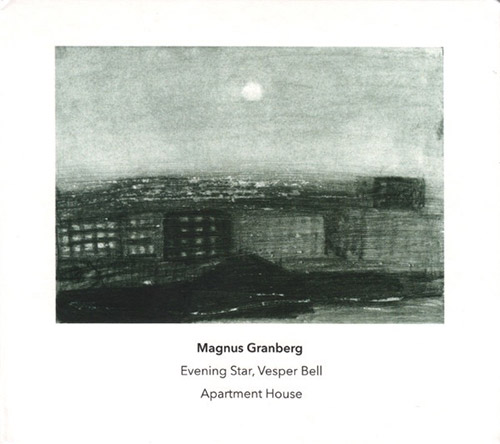

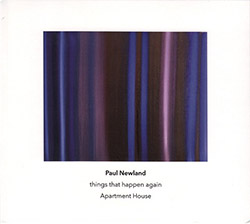

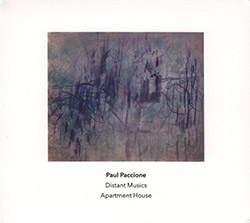

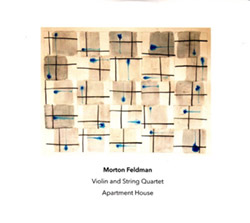
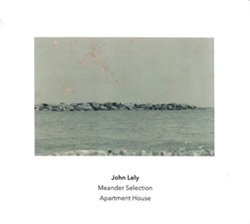
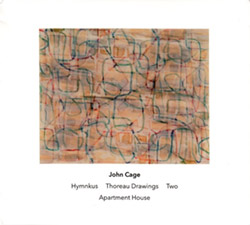
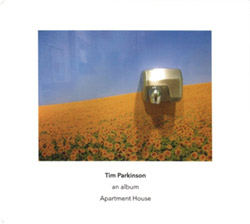
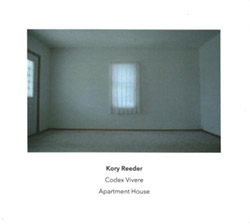


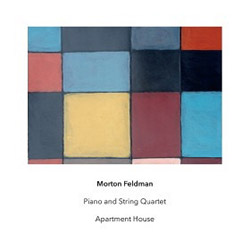
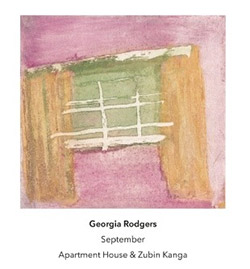

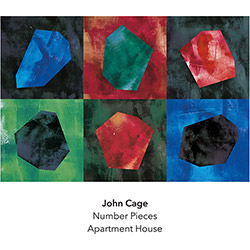
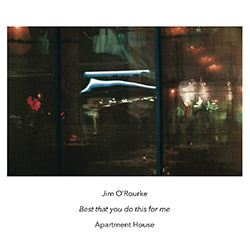
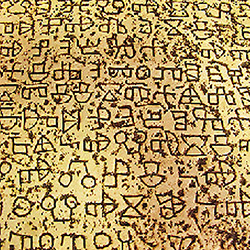



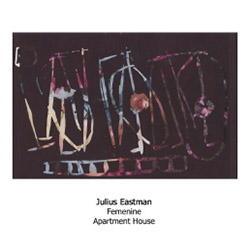



![Guy, Barry / Ken Vandermark: Occasional Poems [2 CDs]](https://www.teuthida.com/productImages/misc4/34849.jpg)
![Novoa / Carter / Mela Trio: Vol.1 [VINYL]](https://www.teuthida.com/productImages/misc4/35236.jpg)


![Elephant9 : Mythical River [VINYL]](https://www.teuthida.com/productImages/misc4/34624.jpg)
![Evans, Peter (Evans / Eldh / Black): Extra [VINYL]](https://www.teuthida.com/productImages/misc4/35279.jpg)

![McPhee, Joe: Straight Up, Without Wings [BOOK]](https://www.teuthida.com/productImages/misc4/35454.jpg)
![Jeck, Philip: rpm [2 CDs]](https://www.teuthida.com/productImages/misc4/35455.jpg)













![Barker / Parker / Irabagon: Bakunawa [VINYL]](https://www.teuthida.com/productImages/misc4/35533.jpg)
![Blaser, Samuel / Marc Ducret / Peter Bruun: Dark Was The Night, Cold Was The Ground [VINYL 10-inch]](https://www.teuthida.com/productImages/misc4/35492.jpg)








![Warren, Kenny (Warren / Hoffman / Ellman): Sweet World [VINYL]](https://www.teuthida.com/productImages/misc4/35451.jpg)




![Blake, Ran / Dave Knife Fabris: Live Amsterdam 2006, First Visit [CD + POSTCARDS]](https://www.teuthida.com/productImages/misc4/35275.jpg)













![DNS: Taking Big Bites Of The Khandas Three Cafes Deep [2 CDs]](https://www.teuthida.com/productImages/misc4/35334.jpg)




![Cleaver, Gerald: The Process [VINYL]](https://www.teuthida.com/productImages/misc4/34966.jpg)




![Alva Noto: HYbr:ID II [VINYL 2 LPs]](https://www.teuthida.com/productImages/misc4/35201.jpg)

![Baron, Derek / Luke Martin: Distinct and Concealed [CASSETTE + DOWNLOAD]](https://www.teuthida.com/productImages/misc4/35079.jpg)

![Lyle, Erica Dawn : Colonial Motels [CASSETTE + DOWNLOAD]](https://www.teuthida.com/productImages/misc4/35080.jpg)









![Sanna, Claudio: Compositori Sardi Contemporanei II [2 CDs]](https://www.teuthida.com/productImages/misc4/35317.jpg)







![Zurria, Manuel: Fame di Vento [3 CDs]](https://www.teuthida.com/productImages/misc4/35167.jpg)

![Frey, Jurg: Outermost Melodie [2 CDs]](https://www.teuthida.com/productImages/misc4/35039.jpg)

![Pavone, Jessica: Reverse Bloom [VINYL]](https://www.teuthida.com/productImages/misc4/34895.jpg)




![Modney (Modney / Wooley / Gentile / Roberts / Pluta / Symthe / ...): Ascending Primes [2 CDs]](https://www.teuthida.com/productImages/misc4/34852.jpg)









![Elephant9 with Terje Rypdal: Catching Fire [VINYL 2 LPs]](https://www.teuthida.com/productImages/misc4/35355.jpg)
![Deerlady (Obomsawin, Mali / Magdalena Abrego): Greatest Hits [VINYL]](https://www.teuthida.com/productImages/misc4/34876.jpg)




![Haino, Keiji: Black Blues [2 CDs]](https://www.teuthida.com/productImages/misc4/35109.jpg)



![Surplus 1980: Illusion of Consistency [CD]](https://www.teuthida.com/productImages/misc4/35069.jpg)
![Staiano, Moe: Away Towards the Light [VINYL + DOWNLOAD]](https://www.teuthida.com/productImages/misc4/35037.jpg)



![Caveira (Gomes / Sousa / Abras / Ferrandini): Ficar Vivo [VINYL]](https://www.teuthida.com/productImages/misc4/34643.jpg)
![Gregg, J. J. / David Van Auken: Lunar Prairie [CD w/ DOWNLOAD]](https://www.teuthida.com/productImages/misc4/34611.jpg)

![Coultrain: Mundus [VINYL]](https://www.teuthida.com/productImages/misc4/32439.jpg)
![Mattin: Songbook #6 [VINYL]](https://www.teuthida.com/productImages/misc4/27317.jpg)
![Punkappella: Wake Up [7-inch VINYL]](https://www.teuthida.com/productImages/misc4/17519.jpg)
![Residents, The: WARNING: UNiNC.: Live And Experimental Recordings 1971-1972 [VINYL 2 LPs]](https://www.teuthida.com/productImages/misc4/31521.jpg)
![Coultrain: Phantasmagoria [VINYL]](https://www.teuthida.com/productImages/misc4/30142.jpg)
![Lennon, Sean Ono: Asterisms [VINYL]](https://www.teuthida.com/productImages/misc4/34517.jpg)

![Coley, Byron: Dating Tips for Touring Bands [VINYL]](https://www.teuthida.com/productImages/misc4/17906.jpg)

![Lost Kisses: My Life is Sad & Funny [DVD]](https://www.teuthida.com/productImages/misc4/lostKissesDVD.jpg)